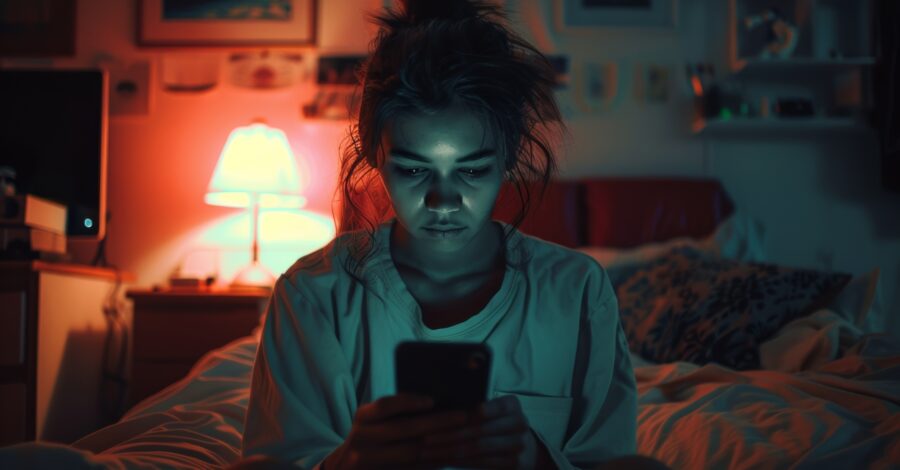• Well-being •3 min read

In today’s digital age, our lives are intertwined with screens more than ever. From smartphones and tablets to laptops and smart TVs, screens have become an integral part of our daily routines. However, this increased screen time comes with a hidden cost. Prolonged exposure to screens has been linked to a host of mental health issues, including stress, anxiety, and depression.
The constant barrage of notifications, the pressure to stay connected, and the endless scroll of social media feeds can be overwhelming. These digital interactions, while often productive and entertaining, can lead to mental fatigue and emotional distress. As we spend more time in virtual environments, the boundary between our online and offline lives becomes blurred, often resulting in neglected personal well-being and deteriorating mental health.
Statistics reveal a concerning trend: a significant percentage of individuals report that their mental health is negatively impacted by excessive screen time. A study by the Pew Research Center found that over 70% of people feel more stressed when they spend too much time on their devices. Additionally, a large proportion of users experience increased anxiety and depressive symptoms as a direct result of their digital habits. [“][“]
Excessive screen time can disrupt sleep patterns, reduce physical activity, and increase feelings of loneliness and isolation. The relentless need to check notifications and engage with online content can create a cycle of dependency that is hard to break, exacerbating feelings of stress and anxiety.
To combat the negative effects of excessive screen time, it’s important to implement practical strategies that can help manage and reduce device usage. One effective method is to leave your phone in another room during critical tasks or leisure activities. This physical separation helps reduce the temptation to check your device constantly and allows you to focus more on the present moment.
Another approach is to set specific times to turn off your phone completely. For instance, you could power down your device an hour before bedtime to improve sleep quality or designate screen-free periods during the day to engage in offline activities.
For a more structured and comprehensive solution, AppBlock offers a suite of features designed to help you take control of your digital habits. AppBlock empowers users to limit their screen time effectively, ensuring a healthier balance between digital and real-life interactions.
One of the standout features of AppBlock is its Strict Mode. This feature provides different levels of restriction to help users stay committed to their screen time goals. Strict Mode can prevent users from changing their AppBlock settings or even block the app from being uninstalled. This ensures that users remain focused and are less likely to revert to their old habits of excessive screen usage.
In a world where screens dominate our daily lives, managing screen time is crucial for maintaining mental health and well-being. While practical steps like leaving your phone in another room or turning it off at designated times can help, tools like AppBlock offer a comprehensive solution to ensure you stay on track.
AppBlock not only helps you limit your screen time but also transforms your device into a tool for productivity and success. By implementing features like Strict Mode, AppBlock empowers you to reclaim control over your digital interactions, reducing stress, anxiety, and depression. Download AppBlock today and take the first step towards a healthier, more balanced digital lifestyle.
Gain back control over your screen, empower your life with AppBlock.
Try for free